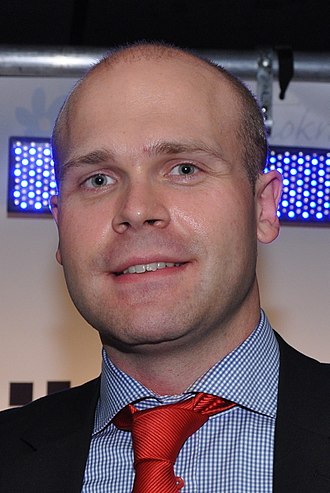Sweden needs a scenario like the Hungarian
Magyar NemzetExcerpt: Swedes will go to the polls in a historic election on 11 September. For the first time in their modern history, there is a viable alternative government that embraces genuine conservative and national values. This coalition is made up of the Liberal Conservatives, the Christian Democrats and my own former party, the Sweden Democrats - a national-minded, social conservative party.Sweden needs a scenario like the Hungarian

ERIK ALMQVIST
Swedes will go to the polls in a historic election on 11 September. For the first time in their modern history, there is a viable alternative government that embraces genuine conservative and national values. This coalition is made up of the Liberal Conservatives, the Christian Democrats and my own former party, the Sweden Democrats – a national-minded, social conservative party. However, this coalition will not be able to win a majority on its own, so it also relies on a centrist-liberal party. The other electoral bloc is made up of the Social Democrats, who are now in government, the Greens, a centrist-liberal party and the former Communist Party. According to the latest opinion polls, the race is very close, with a majority depending on only a few thousand swing votes in the polls.
In Sweden, three issues dominate the public debate on the elections: the war in Ukraine, energy prices and violent crime. While most analysts agree that the war favours the incumbent prime minister, the other two issues have become increasingly problematic for the red government. Over the past few years, nuclear reactors in southern Sweden have been shut down one after the other because of Green Party ultimatums. This has dramatically exacerbated the power crisis – so much so that Sweden has now reopened an old oil-fired power plant that is operating continuously for the first time in decades. With just two weeks to go before election day, the government has reopened the door to more nuclear power – but building new reactors is a very long process, so few voters seem to see this as anything more than a cheap campaign gimmick that does not divide, does not multiply, for the foreseeable future. Violent crime is an even tougher nut for the government to crack. According to the latest Ipsos survey, Swedes rank third in the developed world on a list of how concerned the population is about violent crime. Swedes are more worried than South Africans, ahead of them are only the citizens of Mexico and Chile – countries where they are unable to enforce the law. It is worth noting that Poles are the least worried, followed by Hungarians and Japanese. And according to official EU statistics, Sweden has the highest per capita rate of firearm homicides in the EU, while Hungary and Poland have the lowest.
In Sweden there are shootings practically every day, often more than once. Ten years ago, they made the headlines, but nowadays the major newspapers usually devote no more space to them than a short report. What makes the violent crime problem so difficult for the incumbent government is that it is directly linked to recent immigration. Acknowledging the cause of crime rates is tantamount to admitting that the current and previous governments have done great harm to their own populations by imposing an immigration policy that was never supported by the majority of Swedes. And if their challenger, the right-wing bloc, wins this election, it will be because of immigration policies and their consequences. After having supported ultra-liberal immigration laws for a long time, the traditional Swedish ‘right-wing’/liberal-conservative parties have finally admitted they were wrong and made a 180-degree turn in recent years. If Sweden is to see a real change of government after Sunday’s elections, it will be the first of many steps it will have to take from a conservative point of view to have any chance of survival as a nation state. And the clock is ticking. In each new election, a few hundred thousand citizens newly immigrated to Sweden may cast their vote. And four out of every five non-Western immigrants vote for a socialist or Islamist party. It is therefore vital for a truly nationalist right to address demographic change as soon as possible if it is to gain and retain power. This change undermines not only Sweden as a Swedish country, but also the chances of a non-liberal government ever winning election once again.
Unfortunately, after the election there is no realistic chance of forming a right-wing government without relying on the Liberal Party. And since the Liberal Party would in such a scenario have the role of kingmaker in parliament, it could easily use it to its advantage, demanding a number of concessions from any government that wants its support. In other words, while Sweden as a nation state would need a Hungarian-type scenario – a stable majority – to form a nationalist government, this will not happen this time either. And with demographic change, the chances of that happening are diminishing with each election. I hope that the result of this election will be the first of many steps to save Sweden, but if it is not, at least it will be an example: the fate of the former Sweden should be avoided by Hungary and the rest of Europe.
The author is a journalist and former member of the Swedish Parliament.
Origin: Magyar forgatókönyvre lenne szüksége Svédországnak, Magyar Nemzet, 08.09.2022